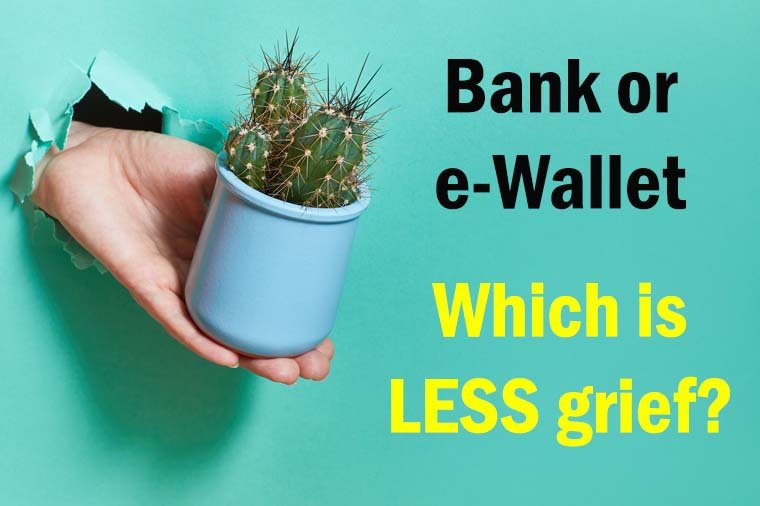After establishing your new company, you will need to obtain banking facilities. This is where problems can begin.
- Banks are very heavily regulated, and this is reflected in their lengthy opening procedures.
- Typically, banks require 4 to 6 weeks to complete their compliance requirements. In all cases, the bank will require a business plan and a CV for each of the principals.
- Worldwide, banks generally require a face-to-face meeting, although we work with a small number of banks that do not require this.
- Banks will often not open accounts for companies based outside their borders.
The solution can often be to open an e-wallet (also known as a digital wallet) account.
- E-Wallet providers are generally subject to less regulation than banks.
- They are much faster to open than bank accounts (sometimes the same day, usually within a few days).
- Digital Wallet providers rarely require a personal visit.
- Although there can be geographic limitations between the competing e-wallets, almost all jurisdictions and nationalities can be accommodated by one account or another (other than countries like North Korea, which are subject to UN sanctions).
In broad terms, therefore, e-wallets are very much easier to open than traditional bank accounts. They are primarily operated as apps on a mobile phone and are designed to be convenient to use.
do you have a problem with bank account opening for your hong kong company?
Do you have a Hong Kong company but don’t have a bank account? Visit our e-wallet account packages specifically aimed at opening accounts for Hong Kong companies.
What are the advantages of an electronic wallet?
E-wallets have other advantages compared to banks that include: –
- Zero or very low fixed maintenance fees.
- Low transaction fees, particularly in the same geographic area (EU, The Americas etc.).
- Frequently, attractive conversion rates between currencies are offered, along with the ability to maintain balances in a range of currencies.
- Cards (primarily Visa & MasterCard, but sometimes also Union Pay etc.) are usually offered. These typically are “pre-paid”, meaning that funds must be loaded from the e-wallet account onto the card as required.
- Some (but by no means all) e-wallets offer credit card processing giving you the ability to accept clients’ credit cards. In most cases, this is through a ‘shopping cart’ integrated onto your website, or ‘pay-by-link’, where a link is sent allowing the client to pay on the processor’s website. Fees can vary substantially between processors.
What are the disadvantages of an electronic wallet?
The downsides to e-wallets include the lack of guarantees should the provider fail – much depends on who regulates them and whether client funds are held in separated accounts (most are). Fintech is still a young ‘industry’, and this means frequent changes to the e-wallet landscape – companies come and go, and there are often changes to the terms and conditions within an existing company and at short notice.
Probably, the solution is to open not one but two e-wallets – each specialising in a different aspect of your requirements. Once these e-wallets are operating, look at opening a conventional bank account for holding the bulk of your funds.
How useful was this post?
Click on a star to rate it!
Average rating 5 / 5. Vote count: 3
No votes so far! Be the first to rate this post.


Recent Comments